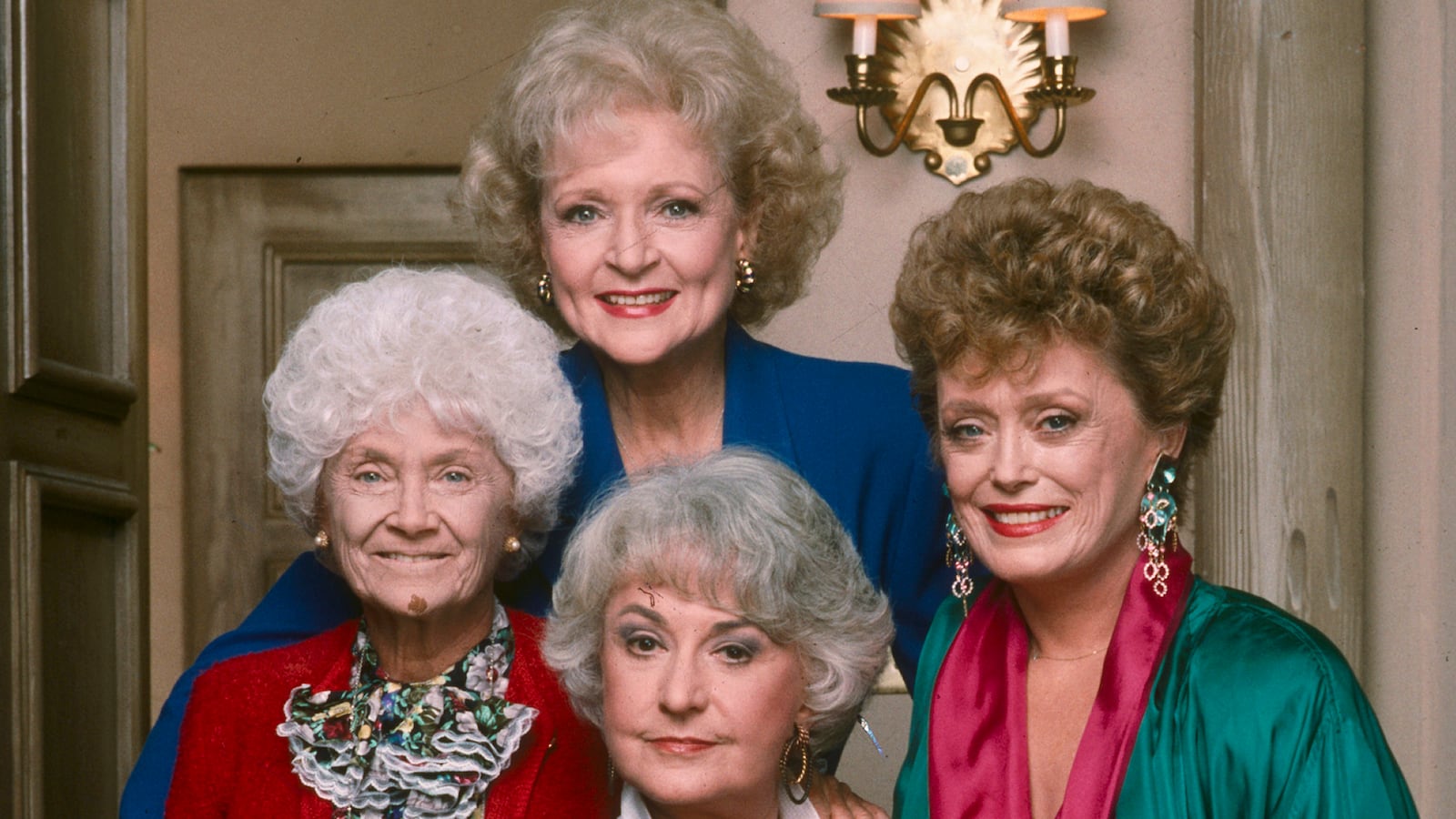Before Hillary Clinton, Rob Portman, and President Obama were championing gay marriage, Sophia Petrillo, Julia Sugarbaker, and Mrs. Garrett were equal-rights crusaders. Over the past decade, TV audiences met Will and Grace, cried with Kurt on Glee and were introduced to The New Normal. But long before those comedies hammered home the point that being gay is OK, a handful of progressive classic sitcoms interrupted the laughs to preach to audiences about loving thy neighbor no matter who they love.

As the Supreme Court takes on the second day of arguments in landmark same-sex marriage cases, here’s a topical look back at what The Golden Girls, Designing Women, and more taught us about gay rights.
The Golden Girls
Blanche’s brother is getting married, and she’s embarrassed: “I can accept the fact that he’s gay, but why does he have to slip a ring on his finger so the whole world will know?” Enter wise Sophia Petrillo to set her straight. “Why did you marry George?” she asks her. When she talks about the lifetime commitment she wanted to broadcast to all her friends and family, Sophia says, “That’s what Doug and Clayton want, too. Everyone wants someone to grow old with, and shouldn’t everyone get that chance?” After laying down some inspiration, Sophia had one last question: “Blanche, will you marry me?”
Designing Women
When a friend of the Sugarbaker’s & Associates girls learns that the decorators are planning a funeral for a gay friend who is dying of AIDS, she chastises them for helping him out because, as far as she’s concerned, AIDS is “killing all the right people.” Preach, Julia: “The only thing worse than all these people who never had any morals before AIDS is all you holier-than-thou types who think you’re exempt from getting it.” When the friend retorts that “these people” are getting what they deserve, Julia fires back. “I’ve known you for 27 years, and all I can say is if God was giving out sexually transmitted diseases to people as punishment for sinning, then you would be at the free clinic all the time.” And that was the night the lights went out in Geor-gia.
All in the Family
Oh boy, is Archie fired up when he learns that Mike and Gloria invited “fairy,” “sweetie pie” Roger, an effeminate man who seems gay but actually isn’t, over for dinner. “We run a decent home here!” But when Mike catches on that one of Archie’s drinking buddies, Steve, a beer-swilling, sports-loving, straight-seeming man actually is gay, Archie realizes that you shouldn't judge a book by its cover and being gay is no reason to dislike someone. All it took was a Meathead to make him see.
Gimme a Break!
The Chief makes an anti-gay joke while on a stakeout, and it offends one of his officers, who comes out of the closet because of it. To make the Chief understand how hurtful it is to hear derogatory cracks made about a group of people you identify with, the officer makes a series of Polish jokes. “What’s the matter, Carl, don’t you think that’s funny?” “Of course not, I’m Polish.” “That’s why I don’t like gay jokes.” Boom!
The Facts of Life
Who knew Mrs. Garrett was so progressive? The gloriously theme-songed sitcom started tackling social issues in its very first episode. Cindy is nominated against walking beauty queen Blair for in a pageant and confides in Mrs. Garrett that she’s uncomfortable with the whole scenario. She likes playing sports, dressing in t-shirts and jeans, and doesn’t care much about boys. On top of that, she hugs and touches girls all the time. “Mrs. Garrett,” she says, “maybe Blair is right. Maybe I’m not normal.” The word “lesbian” is never used, but Mrs. Garrett tells her that maybe she’ll like boys in the future and maybe she won’t. Either way, she says, don’t change who you are. And don’t think Blair gets off the hook—she gets a firm talking-to about jumping to conclusions.
Roseanne
To thwart off Roseanne and Jackie’s nagging about setting her up on a blind date with a loser guy, Nancy tells them she is already seeing someone. “Who’s the guy?” Jackie begs. “Her name is Marla. I’m seeing a woman,” Nancy deadpans. When Jackie is shocked because she and Nancy used to cruise for guys all the time, Nancy kids, “I thought we were dating.” That Roseanne immediately is as crass as ever, kidding around with Nancy about whether she and her girlfriend “did it,” was actually quite monumental. It proved that coming out doesn’t have to change the dynamic of a friendship.
Seinfeld
The ultimate lesson: there really isn't anything wrong with “that.”





